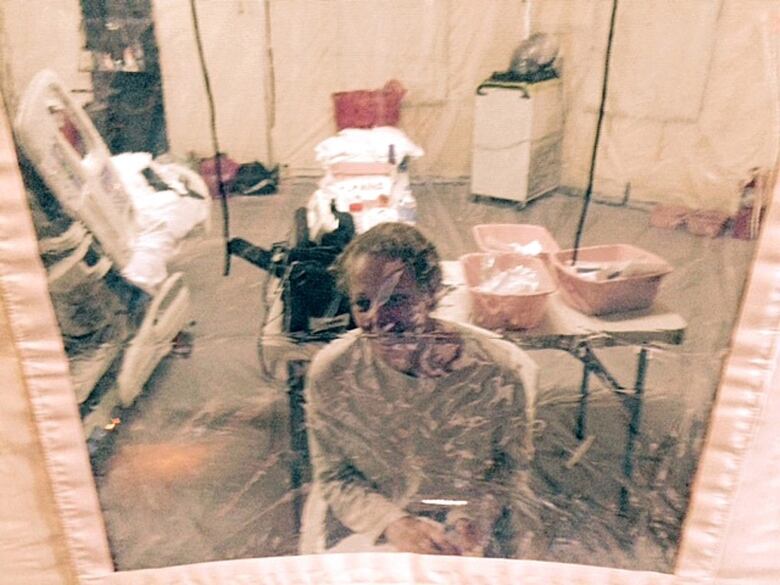'I wasn't even seen as a human': Nurse wrongly painted as public threat during height of Ebola scare

Hickox, a nurse, had been treating patients with Ebola in Sierra Leone.
Upon arrival at Newark International Airport, she expected to participate in about 30 minutes of routine questioning related to her trip and her work abroad.
Instead, Hickox was taken to a separate quarantine office where she was held and questioned without explanation. Eventually, she received a phone call from a New Jersey health department official, telling her she would be quarantined in an undisclosed location.
I didn't even know where to start to try to fight for my constitutional rights.- Kaci Hickox
Health officials had taken her temperature with a forehead thermometer and said she had a fever, one of the symptoms of Ebola. But Hickox says no nurse or doctor would use ever use such a tool to diagnose a fever. An oral thermometer later showed she had a normal temperature. Still, the State of New Jersey isolated her in a tent outside a hospital for three days.
"It was horrible ... I was given paper scrubs and it was cold." Hickox says. "I was already scared of what the state was being allowed to do to me and feeling like I really had no protections. I didn't even know where to start to try to fight for my constitutional rights."
After three days in isolation, a blood test confirmed Hickox did not have Ebola. She was given permission to leave and finally allowed to go to her home in Maine. But newly-released state guidelines required Hickox to quarantine herself in her house for 21 days, despite having no known exposure to Ebola.
Fighting for rights... and against stigma
Soon after Hickox was confined to her home, she decided to defy the isolation conditions by going for a bicycle ride, earning her international media attention.

Hickox then took the state of Maine to court over her quarantine. A judge ruled Hickox could leave her house, but would have to have her health monitored, report any symptoms, and coordinate travel plans with local officials.
Hickox was happy with the decision, but many people were not. She says she began receiving hate mail with messages ranging from "You give nursing a bad name," to "I hope you get Ebola and die."
Politicians also spoke out publicly against her. Chris Christie, then-governor of New Jersey said Hickox was "obviously ill", while Maine governor Paul LePage said, "She's violated every promise she's made so far ... I don't trust her."
It makes you feel all alone and it makes you feel an incredible sadness ... I wasn't even seen as a human.- Kaci Hickox
"It was so disheartening," says Hickox, "That was honestly one of the turning points for me when I decided that I had to help stand up and make sure that this didn't happen to any of my other healthcare workers who would be returning from West Africa."
A year after her ordeal, Hickox filed a civil rights lawsuit against Christie and New Jersey health officials. A settlement was reached that granted rights to people quarantined in the state, including an ability to fight the order, the right to legal counsel, and the right to privacy if it doesn't compromise public health.
"Before this experience, I never realized the impact of stigma," says Hickox. "As difficult as this situation was, it taught me a lot about how it feels to be on that other end of facing stigma and people being so hateful and basically being discriminated against.
"It makes you feel all alone and it makes you feel an incredible sadness ... I wasn't even seen as a human.
"I hope we can find a way to start turning this needle and creating some social solidarity instead of all of the division I'm seeing today."
This story appears in the Out in the Open episode "Untruth Be Told".